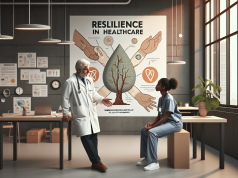Transforming Challenges into Opportunities: Problem Reframing for Government Professionals Facing Stress and Anxiety
The relentless pace of change in today’s world, coupled with the immense responsibilities shouldered by those in the government sector, often leads to significant stress and anxiety. The pressure to make impactful decisions, navigate complex bureaucracies, and serve the public can overwhelm even the most seasoned professionals. However, there is a powerful strategy that government professionals can utilize to mitigate stress and seize opportunities for growth: problem reframing.
The Power of Perspective
At the heart of problem reframing is the power of perspective. When government professionals encounter challenges, their natural response might be to view these as hurdles or threats. This perspective can exacerbate feelings of stress and anxiety. However, by consciously shifting the way we perceive these challenges, we can transform them into opportunities for innovation and improvement.
Problem reframing involves looking at a situation from new angles, challenging assumptions, and identifying potential benefits hidden within apparent obstacles. It requires moving from a problem-centric view to one that is opportunity-focused, thereby reducing the emotional burden associated with stress and anxiety.
Cultivating a Growth Mindset
Government professionals can benefit significantly from adopting a growth mindseta belief that skills and intelligence can be developed with time and effort. This mindset encourages viewing challenges as opportunities to learn and grow, rather than as insurmountable barriers. By embracing a growth mindset, professionals can reframe problems as stepping stones to personal and professional development.
For instance, when faced with a budgetary constraint, a government official might initially see it as a limitation. By reframing, they could view it as an opportunity to explore innovative cost-saving strategies that could transform operations more efficiently.
Practical Steps for Problem Reframing
- Identify the Core Challenge: Begin by clearly defining the problem, removing any emotional bias. Focus on the facts and the specific issues at hand.
- Challenge Assumptions: Question the assumptions underlying the problem. Are they accurate, or are they based on outdated or inaccurate information?
- Explore Alternative Perspectives: Consider the problem from different angles. How might another department view this issue? What would the perspective of a stakeholder or a member of the community be?
- Identify Opportunities: Look for potential opportunities that might arise from the problem. How can these opportunities lead to innovative solutions or improvements?
- Develop a Plan: Create actionable steps that capitalize on the opportunities identified. Ensure that these steps are concrete, measurable, and align with the broader goals of your department or organization.
Building Resilience Through Reframing
Ultimately, problem reframing not only helps in reducing stress and anxiety but also builds resilience. Government professionals who actively practice reframing develop a more robust approach to handling challenges, becoming more adept at coping with and adapting to change.
Resilience is essential in the government sector, where professionals are continually faced with new policies, public expectations, and global events that can disrupt normal operations. By strengthening resilience through reframing, government professionals can lead with clarity and confidence, even in the face of adversity.
Conclusion
In conclusion, problem reframing is a transformative strategy that can help government professionals navigate stress and anxiety effectively. By harnessing the power of perspective, cultivating a growth mindset, and actively seeking opportunities within challenges, government professionals can turn adversity into a catalyst for innovation and success.
As the demands on government professionals continue to evolve, embracing problem reframing is not just a mental exerciseit’s an essential tool for thriving in a complex and ever-changing landscape. By doing so, these professionals will not only enhance their personal well-being but also contribute to the greater good through improved public service and governance.




























